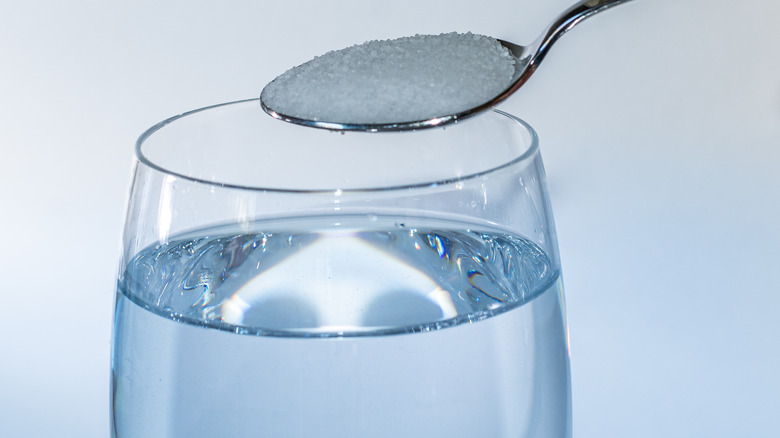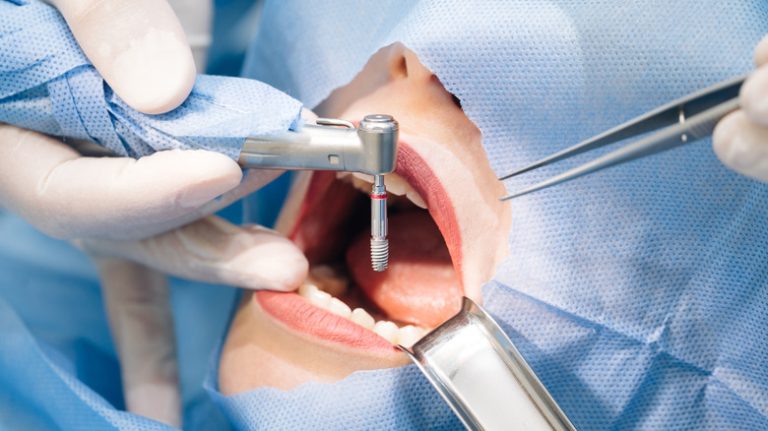Not all toothaches feel the same. In fact, experts at Metro East Dental Care explain that for some people, a toothache can give off a dull ache, while others may experience throbbing sensations or an abrupt, jabbing pain. However, the type of oral discomfort they experience can lend clues as to what may be the cause of the toothache.
A dull ache could point to an abscessed tooth or even something as simple as a piece of food that has gotten jammed between the teeth (via Metro East Dental Care). On the other hand, throbbing tooth pain could indicate a possible fractured tooth, loose crown, or infected gums. Alternatively, a sharp, sudden pain could be a sign of a loose filling or serious damage to the tooth’s enamel. At the end of the day, the presence of any kind of toothache signals that a person’s oral health is in need. Until they can make an appointment with their dentist, however, many people look to at-home remedies for short-term symptom relief. Can a salt water rinse be considered one of these effective DIY toothache treatment methods?
How to make a salt water rinse

A 2024 study published in the Journal of Indian Society of Pedodontics and Preventive Dentistry found that rinsing the mouth out with salt water was equally as effective as a chlorhexidine mouth rinse in decreasing levels of plaque in dental patients, thereby minimizing their risk for oral disease. In addition to reducing the risk of toothaches due to dental disease, Medical News Today notes that salt water has antimicrobial properties, which could potentially lessen inflammation. According to Metro East Dental Care, it may help dislodge intruders between your teeth, thus relieving the discomfort.
If you’re interested in giving a salt water rinse a try, experts at White Clay Dental suggest combining 1 teaspoon of salt with 1 cup of boiling water. Stir the mixture until fully dissolved, and then let it sit until it cools down. Finally, rinse for 45 seconds before spitting. It’s important to remember, however, that while a salt water rinse and other at-home remedies may help relieve a toothache, they will not cure the underlying cause of the pain (per Medical News Today). Therefore, WebMD encourages individuals to visit their dentist if their tooth pain persists for more than a day or two, is severe, or is accompanied by earache, fever, or pain when spreading their mouth wide open.




